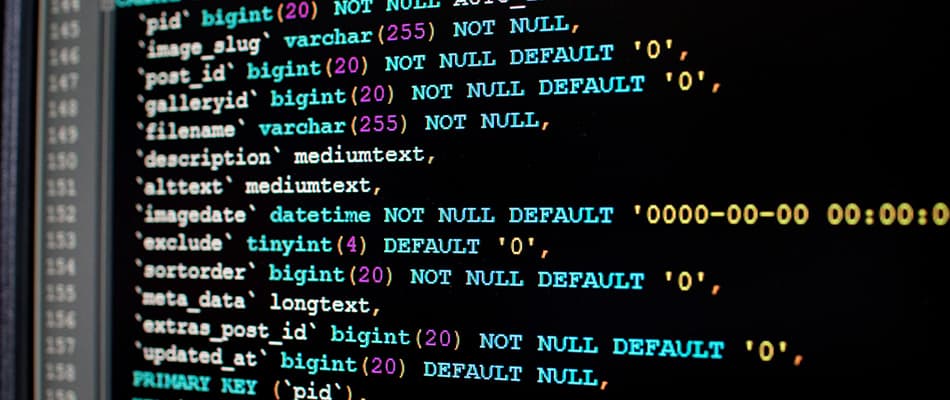How to Become a Full Stack Developer in Tanzania? Explore Step-by-Step Process
Full stack developers are skilled in both front-end and back-end development, allowing them to build complete websites and applications. In Tanzania, the demand for these professionals is growing as more companies and startups move their services online.
If you are interested in building websites, solving problems, and working with technology, you may want to learn how to become a full stack developer in Tanzania. It offers a promising career path with higher salaries and a wide range of job opportunities in web development across different industries.
In this article, we will discuss the importance of this field, the skills you need, how to begin, where to study, and what to expect in terms of careers and compensation.
Why Choose a Career in Full Stack Development in Tanzania?
Tanzania is seeing a rise in digital businesses, creating more jobs for developers. Full stack developers are in demand because they can handle many tasks on their own, from designing websites to setting up servers. Their ability to work across various layers of a digital product makes them important in companies of all sizes.
Those exploring how to become a full stack developer in Tanzania, should also be aware of the benefits of choosing this field.
Here are some reasons why this career is worth considering:
- There is a growing demand for local and remote job roles. Many Tanzanian companies, as well as global firms, look for full stack developers who can handle various parts of development.
- Entry-level salaries are high compared to other fields. Even those starting fresh can earn well if they have strong skills.
- You get many chances to work on different types of projects. From websites to apps and e-commerce platforms, you can explore many industries.
- Those who are searching for how to become a full stack developer in Tanzania should know that they can choose to work as a freelancer or with a company. There is freedom in deciding how and where to work.
- A career in full stack development offers clear growth opportunities, with continuous learning supported by evolving technologies and in-demand skills. As you learn more, you can move into specialised roles as per your interest, such as front-end, back-end, or system architecture.
Skills Required to Become a Full Stack Developer
To succeed as a full stack developer, you need a mix of design, coding, and problem-solving skills. These allow you to manage everything from how a website looks to how it works behind the scenes.
If you are wondering how to become a full stack developer in Tanzania, start by building these basic skills and improving them with time.
The following are the essential skills you should learn:
- Basic HTML and CSS: These tools help you structure web content and apply visual styles. HTML provides the content layout, while CSS controls how it looks.
- JavaScript: This language brings life to websites by adding movement, user interaction, and dynamic content like forms and sliders.
- Front-end frameworks like React or Angular: These frameworks simplify front-end development and help you build large applications with reusable code and components.
- Back-end languages like Node.js or Python: These are used to build the part of websites that users don’t see, including managing data and server operations.
- Databases such as MongoDB or MySQL: Being familiar with these frameworks is important for those understanding how to become a full stack developer in Tanzania, as they help store, retrieve, and manage data such as user details or product listings securely.
- Version control using Git and GitHub: These tools let you track changes in your code and work with other developers without confusion.
- Basic knowledge of APIs: APIs allow your website or app to talk to other platforms and share information, such as fetching data from weather services or payment providers.
- Problem-solving and debugging skills: These help you find errors in your code and improve it for better performance and stability.
Explore the Top Full-Stack Web Framework Here
Step-by-Step Guide to Becoming a Full Stack Developer in Tanzania
Starting your journey can be simple if you follow the steps in the right order. Each step builds your knowledge and prepares you for the next stage. If you want to understand how to become a full stack developer in Tanzania, the steps below will guide you through the full journey.
The following steps can help you get started:
- Join a Full Stack Development Course: Begin by enrolling in a course that teaches both front-end and back-end technologies in a structured way. This will give you a strong foundation.
- Learn the Basics First: Focus on HTML, CSS, and JavaScript as they form the base of web development. Try to build simple websites to apply what you learn.
- Move to Advanced Topics: Once you are confident with the basics, move on to server-side programming, frameworks, databases, and version control.
- Work on Small Projects: If you are learning how to become a full stack developer in Tanzania, start by creating simple apps such as a calculator or a blog site. These projects will help you apply your skills in real situations.
- Create a Portfolio: Build a collection of your projects to showcase your skills. Add links, short descriptions, and images to make it clear and appealing.
- Stay Updated: Technology changes quickly. Follow blogs, watch tutorials, and practice regularly to stay informed about new updates and tools.
- Take Part in Online Challenges: Coding competitions and open-source projects can improve your skills and also help you connect with other developers.
- Apply for Jobs: When you have built enough knowledge and projects, apply for junior roles or internships in Tanzanian companies or freelance platforms.
Learn How Long Does It Take to Learn Programming Here
Top Institutes & Platforms to Learn Full Stack Development
There are many online and offline platforms available for Tanzanians who want to study web development. Online platforms are flexible and ideal for people who want to study while working or from home.
If you are wondering how to become a full stack developer in Tanzania, choosing the right course can help you learn faster and in an organised way.
Digital Regenesys Full Stack Web & Software Development Course
The Digital RegenesysFull Stack Web and Software Development Course is a 36-week online course that covers all the tools and topics needed to become a full stack developer. Learners are taught HTML, CSS, JavaScript, React, MongoDB, Git, GitHub, APIs, and how to secure web applications.
This is one of the ideal courses for students and professionals who are exploring how to become a full stack developer in Tanzania. Some of the main highlights of the course:
- Offers a globally recognised certificate upon course completion that adds value to your resume.
- Covers both front-end and back-end in a detailed, structured curriculum that builds skills step by step.
- Taught by experienced professionals who share real coding knowledge and industry insight.
- Flexible online format that lets you learn at your own pace and fit classes around your schedule.
- Offers practical experience by letting you build projects and teaches you to use industry-relevant tools.
- Accredited by IITPSA and provides 30 CPD points, making it useful for future qualifications.
Job Opportunities & Salary Expectations in Full Stack Development in Tanzania
There are several job options you can explore after completing the course. Tanzanian firms in banking, telecom, health, education, and startups regularly hire developers to build their websites and systems.
When learning how to become a full stack developer in Tanzania, it’s helpful to know which roles to aim for and what income to expect. As per the insight available on World Salaries, the average annual salary of a full stack developer in Tanzania is around 14,760,200 TZS. However, this can vary depending on your seniority, experience level, and the company you work for.
Here are some common job roles you can explore in full stack development:
- Junior Developer: This is usually the first role after training. You help senior developers by writing simple code, testing it, and fixing issues.
- Front-End Developer: You focus on what users see on the website. This includes layouts, colours, fonts, and interactive elements.
- Back-End Developer: This role involves building and maintaining servers, handling database tasks, and writing logic for how the app works.
- Full Stack Developer: You combine front-end and back-end roles. You work on building entire applications from scratch to deployment.
Discover Full Stack Developer Interview Questions and Answers Here
Conclusion
A career in full stack development offers great job options, growth, and income. It is a skill that is needed in many areas such as e-commerce, education, health, and finance. Those wondering how to become a full stack developer in Tanzania should start by learning the right skills and joining the right course, you can build a successful career.
Visit the Digital Regenesys website to explore their full stack development course.
How to Become a Full Stack Developer in Tanzania? – FAQs
How to become a full stack web developer in Tanzania?
You can become one by learning front-end and back-end skills through a structured course and building your coding projects.
How do I become a full stack developer in Tanzania?
Start by joining a full stack course, learning essential skills, creating a portfolio, and applying for jobs in tech companies.
Can I learn how to become a full stack developer with no experience in Tanzania?
Yes, many beginner-friendly online courses can help you start without any prior coding experience.
What is the average salary of a full stack developer in Tanzania?
As per World Salaries, the full stack developer salary ranges between TZS 7,24,500 to TZS 23,040,200 per year based on skills and experience. This figures are accurate as of April 2025.
Which course is best for becoming a full stack developer in Tanzania?
Digital Regenesys offers a 36-week detailed course with practical projects, online learning, and a globally recognised certificate.
Recommended Posts












